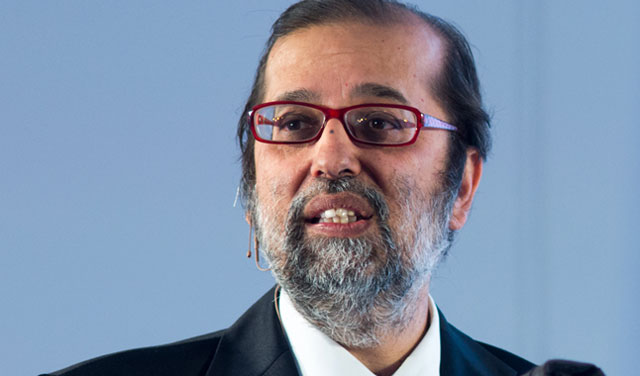
Communications minister Yunus Carrim has accused MultiChoice and its partners of trotting out the “same old, tired issues” over digital terrestrial television and labelled the pay-television broadcaster a bullying “monopoly”.
He was responding to full-page Sunday newspaper advertisements in which MultiChoice and two industry associations accused him of advancing the “narrow commercial interests” of “certain” players, in a clear reference to free-to-air broadcaster e.tv.
MultiChoice and e.tv are engaged in a high-stakes war over whether the set-top boxes that consumers will need to watch digital television when the country switches off analogue broadcasts should contain a control system based on encryption technology.
Carrim, responding to a request for comment from TechCentral, said the issues raised by MultiChoice — along with industry lobby groups, the National Association of Manufacturers in Electronic Components and the Association of Community Television South Africa — had already been dealt with in detail by several experts during a facilitation process between the warring broadcasters.
“The [MultiChoice] advert is astonishingly inaccurate and serves to substantially weaken the case of those opposed to the government’s policy,” Carrim said.
“At the heart of the dispute are the fears of a huge monopoly about competition. It’s 20 years into our democracy and we have to de-racialise the economy. In all economic spheres where monopolies are challenged in our country, they resist fiercely. We can’t be constantly bullied. It is absurd that a monopoly that makes such huge profits in this country claims that it, not the ANC government, represents the country’s interests.”
It’s clear that the letter from MultiChoice and its partners has raised Carrim’s hackles. “The policy is obviously not my personal, subjective decision. The policy was adopted by cabinet in 2008. On 4 December last year, following an extensive facilitation process, cabinet adjusted it so that broadcasters should be free to decide whether to use the control system in the set-top boxes or not. But the boxes will have a control system for industrial policy and other reasons. Those using the system will pay for it.”
Carrim said cabinet’s take on the issue is consistent with the ANC’s Mangaung resolutions and government’s policies on encouraging competition in monopolised sectors. It is also consistent with the objectives of broad-based black economic empowerment, job creation and advancing the needs of the poor and disadvantaged.
Communications regulator Icasa “fully supports” government’s policy on set-top box control, Carrim said.
“Many other countries are using or about to use the same system. They include Zambia, Uganda, Botswana, Ethiopia, the Seychelles, Malawi, Nigeria, Namibia, Tanzania, Kenya, Malaysia, Ukraine, Belarus and Slovakia,” he added.
“If we drop control, the roll-out will be delayed by a year — and we were supposed to launch in September 2008.”
He said government had tried dropping set-top box control altogether but had come up against a number of obstacles. Among these were the need to change the South African Bureau of Standards standard, which would take 34 weeks – if the parties agreed. The change of the standards on 2 previous occasions took 17 months and 16 months, he said.
In addition, concerns that the South African market will be flooded by cheap, low-quality set-top box imports and undermine the local manufacturing industry and the prospects of jobs had forced its hand, he said. There were also threats of legal action from broadcasters and manufacturers wanting encryption.
“It is utterly wrong to say that government’s policy requires free-to-air signals to be encrypted. Broadcasters, not government, have the power to transmit their signals in any format they choose,” Carrim said. “There is no payment required from citizens for free-to-air signals and content. Only free-to-air broadcasters who use the control system will have to pay, not others.”
Most emerging black manufacturers support control, he said. “Without it, they will lose out to foreign imports. The department of trade & industry spends about R7bn/year in industrial incentives to protect the local industry and create jobs. The benefits of control far outweigh the costs.” — (c) 2014 NewsCentral Media

